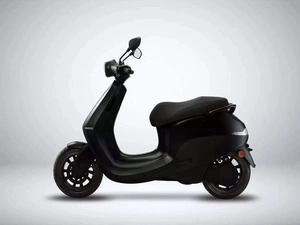Medilytix Bureau : The government, World Bank, and Small Industries Development Bank of India (SIDBI) are set to launch a $1 billion fund to provide guarantees against loan default to lenders financing the purchase of electric two-and three-wheelers, three people aware of the development said.
“The instrument would act as a hedging mechanism for banks to access in case of defaults of loans on the purchase of electric vehicles. This is expected to bring down the cost of financing EVs by 10–12%, “said the person.
The Niti Aayog is the facilitating agency for the project, aimed at facilitating faster and easier financing of electric vehicles. The World Bank, Niti Aayog, and SIDBI did not respond till press time Monday to emails seeking comment.
In October last year, ET reported that government think tank Niti Aayog and the World Bank were in discussions to set up a $300 million loss-sharing mechanism to compensate banks giving loans for electric vehicle purchases. Total financing under the programme was estimated at around $1.5 billion.
State Bank of India was being considered as the programme lead, but it moved out of the partnership as banks still consider EV as a risky segment. SIDBI will now be the implementing institution for the programme.
SBI moved out of the partnership as banks still consider EV as a risky segment, said a second person. “After due diligence, it didn’t seem feasible for SBI to be the programme lead, as it had concerns with respect to EV technology, warranty, and battery life,” he said.
Banks have remained wary of this market after losing money on financing e-rickshaws and other two- and three-wheelers powered by lead-acid batteries.Even as banks have maintained an arm’s length view on the commercial viability and resale value of these vehicles, several non-bank lenders and digital financiers have taken the lead in financing this segment.


